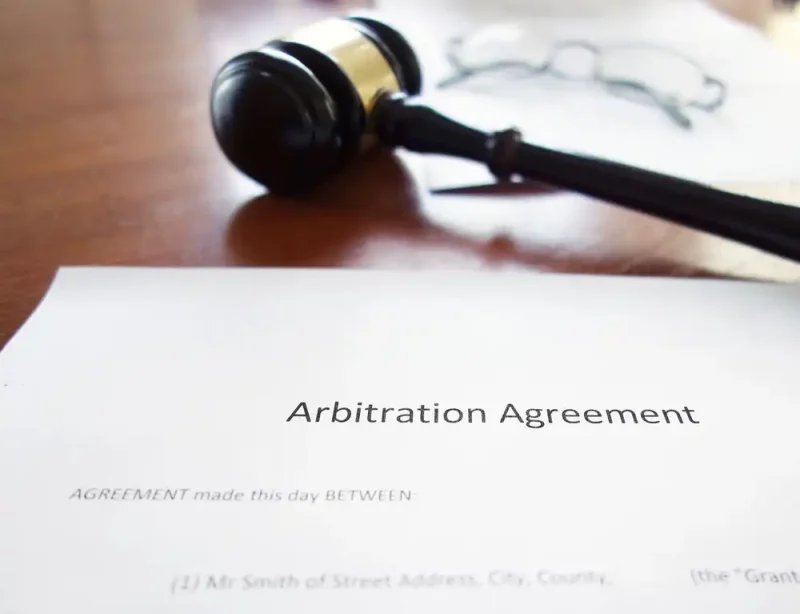Running a small business means wearing many hats—owner, manager, marketer, and often, problem solver. But one hat no business owner wants to wear is that of a defendant. Legal disputes can be time-consuming, stressful, and expensive, pulling you away from growing your company and damaging your reputation. The good news? Many legal issues can be prevented before they ever start. At Brodersen Law, we believe proactive legal planning is one of the smartest business investments you can make. With the right policies, contracts, and awareness, you can avoid common pitfalls and protect your business from costly conflicts.

Start With Clear, Written Agreements
One of the most common sources of business disputes comes down to a lack of clarity in agreements. Whether it’s a contract with a vendor, a service agreement with a client, or a partnership arrangement, relying on verbal understandings is risky. A well-drafted written contract should clearly outline each party’s responsibilities, timelines, payment terms, dispute resolution methods, and what happens if the relationship ends.
Too often, small business owners download a generic template or copy something from the internet without realizing it may not be enforceable or appropriate in their state. Every agreement should be reviewed—or better yet, drafted—by a business attorney who understands your specific operations and local laws. Not only does this protect you legally, but it also sends a message to clients, employees, and partners that your business is professional and prepared.
Know the Difference Between Contractors and Employees
Misclassifying workers is a major source of legal trouble for small businesses. If you treat a contractor like an employee—by setting their hours, providing equipment, or closely supervising their work—you may inadvertently create an employer-employee relationship under the law. This can trigger liability for unpaid taxes, overtime, and benefits.
Make sure you understand the legal criteria that distinguish independent contractors from employees. If you’re unsure, seek legal guidance. A well-written independent contractor agreement can help clarify the relationship, but the real test is how that relationship functions in practice. Stay informed about state and federal labor laws, as they can change and differ depending on where your business operates.
Maintain a Strong Employee Handbook
If you have even one employee, it’s worth investing in an employee handbook. A good handbook sets expectations, outlines workplace policies, and helps protect your business in the event of disputes over things like harassment, discrimination, or discipline. It should include policies on attendance, paid time off, employee conduct, anti-harassment, grievance procedures, and termination protocols.
Just as importantly, your handbook must be up to date and consistently followed. Courts are less likely to uphold policies that aren’t applied equally or are outdated. Regular training and clear communication help reinforce your policies and demonstrate your commitment to a fair and compliant workplace. Brodersen Law can assist you in drafting or reviewing your handbook to ensure it’s legally sound and tailored to your company’s needs.
Put Everything in Writing
It may sound simple, but one of the best dispute prevention tools is documentation. Keep a paper trail—digitally or otherwise—of key communications, decisions, and transactions. Save emails, meeting notes, invoices, contracts, and any relevant correspondence with clients, employees, and vendors.
This documentation can become crucial if there’s ever a misunderstanding or dispute. It provides a timeline of events and protects you if someone challenges the facts. Even small issues, like a customer complaint or a vendor delay, should be documented. And when conversations happen in person or over the phone, follow up with a written summary to confirm what was discussed.

Use Mediation and Arbitration Clauses Wisely
Sometimes, despite your best efforts, disputes arise. Litigation is expensive and public, which is why many businesses choose to include mediation or arbitration clauses in their contracts. These clauses require both parties to try resolving disputes outside of court, often leading to quicker, more cost-effective outcomes.
However, not all alternative dispute resolution clauses are created equal. Some are unenforceable due to vague wording, and others may put you at a disadvantage depending on the chosen location, process, or neutral third party. If you plan to include such a clause, make sure it’s crafted by a qualified attorney who understands your industry and local regulations.
Protect Your Intellectual Property
Many business owners underestimate the value—and vulnerability—of their brand, content, and creative work. Your logo, tagline, website content, proprietary processes, and even your customer list may all be considered intellectual property. Failing to protect them can lead to legal headaches if someone uses your work without permission or claims it as their own.
Consider registering your business name, logo, and key products as trademarks. If you create content, software, or designs, talk to an attorney about copyright protection. For proprietary systems or internal processes, non-disclosure agreements (NDAs) can be useful tools when working with contractors, partners, or potential investors. Proactively securing your IP can prevent future disputes over ownership, infringement, and misuse.
Monitor and Renew Licenses and Permits
Running a business legally means keeping up with required licenses, permits, and registrations—at the local, state, and sometimes federal level. Failing to renew these can not only result in fines and penalties but also open the door to legal disputes or contract breaches if you’re operating out of compliance.
Create a system to track license renewals, tax filings, and annual reports. Keep digital copies of all permits and certifications, and know what’s required if your business expands to new locations or service areas. Regulatory compliance might not be flashy, but it’s a key part of dispute prevention that keeps your business running smoothly.
Know When to Involve a Lawyer
One of the best things you can do to prevent disputes is to build a relationship with a trusted business attorney. You don’t need to wait until something goes wrong to seek legal help. In fact, having an attorney review major contracts, advise on hiring practices, or consult on a growth plan can save you far more than it costs.
At Brodersen Law, we work with businesses of all sizes to minimize legal risk and navigate the challenges of entrepreneurship. We offer practical, plain-English guidance to help you avoid the legal traps that can trip up even the most experienced business owners. Whether you need a one-time review or ongoing legal support, we’re here to be part of your team.
Final Thoughts
Running a business is complex, and no one can anticipate every challenge. But with the right preventive strategies—clear contracts, proper classification, consistent documentation, and legal guidance—you can avoid many of the legal pitfalls that lead to disputes. Being proactive isn’t just about reducing risk—it’s about setting your business up for long-term success.
If you’re ready to protect your business with smart legal planning, Brodersen Law is here to help. Let’s work together to create a strong foundation so you can focus on what you do best—running and growing your business.
